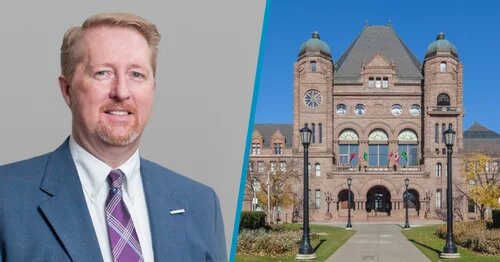
Wednesday, May 22, 2019
Several members have contacted us recently, wondering how best to balance their personal/partisan beliefs with those of being a public servant, keeping in mind the union’s commitment to being non-partisan. We’ve also had members ask about which, if any, acts of mass demonstration or protest the union itself might consider participating in.
AMAPCEO balances its political responsibility to advocate for its membership by speaking truth to power in a strong yet non-partisan fashion. Non-partisanship is bedrock to the juxtaposition of being both public servants and union members – and to our goal in either context to represent ourselves as being independently-minded professionals.
Unions are by their nature political, and sometimes their mission overlaps with certain parties in areas of social justice. This is in no way a definition of partisanship, rather the reality of shared beliefs. However, given that our members have partisan beliefs of their own that span all parties represented in the Legislature, we do our best to maintain positive relationships with all of them. And, regardless of the government of the day, we reserve criticism and any demonstration of it, for those instances that most directly affect our members’ livelihoods—as opposed to our members’ varied partisan beliefs.
Dave Bulmer
President & CEO
We respect that many of our members have their own partisan beliefs and so we provide the following for the purposes of individual guidance.
Public servants are also citizens, and with certain restrictions, have the right to engage politically to help their communities. AMAPCEO members, as employees, take great pride in offering exceptional, non-partisan advice and service to governments of all stripes. As private citizens, many members have public policy issues that they are passionate about and may wish to support. AMAPCEO has considerable experience advising members on allowable political activities and can help clarify your political rights and responsibilities.
- Public servants are permitted to:
- Join a political party or advocacy group as a member
- Place signs in support of candidates or causes on their private property at home;
- Donate to candidates and causes;
- Go to political rallies and hold up signs with messages;
- Canvass with a political candidate or cause; and
- Run for elective office, if they have taken a leave of absence.
Public servants are not permitted to:
- Bring signs or wear visible support for candidates or otherwise engage in politics at work or while working;
- Use government resources for partisan purposes;
- Identify as public servants when canvassing or attending political rallies (This includes not wearing a uniform, should they have one);
- Solicit funding from those they supervise; or
- Associate their position with partisan politics in any way (for example: Canvassing and using their expertise by saying something along the lines of “As a policy analyst in the Ministry of Health, I know that this candidate’s or party’s plan will not work.”
There are also larger general restrictions in the Public Service of Ontario Act.
Section 79(1) mentions that a public servant is not permitted to “(d) engage in political activity if doing so could interfere with the performance of his or her duties as a public servant; or (e) engage in political activity if doing so could conflict with, (i) in the case of a public servant who works in a ministry, the interests of the Crown, (ii) in the case of a public servant who works in a public body, the interests of the public body.”
How these rules relate to you personally obviously depends, to a great extent, on your specific circumstances. If you have any questions about whether your own political activity conforms with the parameters outlined in the Act, please contact AMAPCEO.
Read the section of the Public Service of Ontario Act about political activity (#72) »